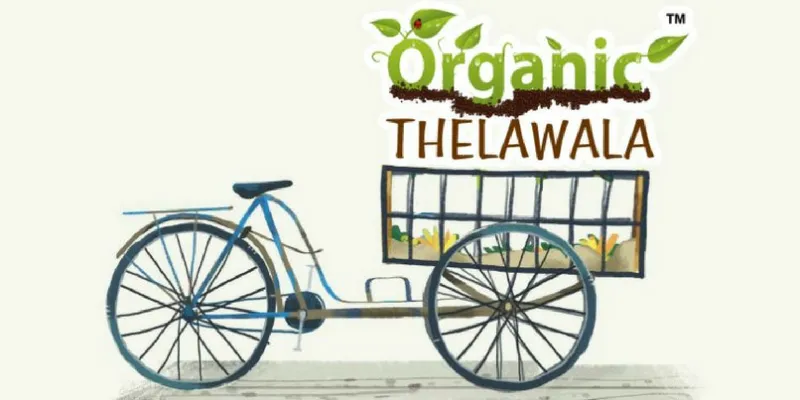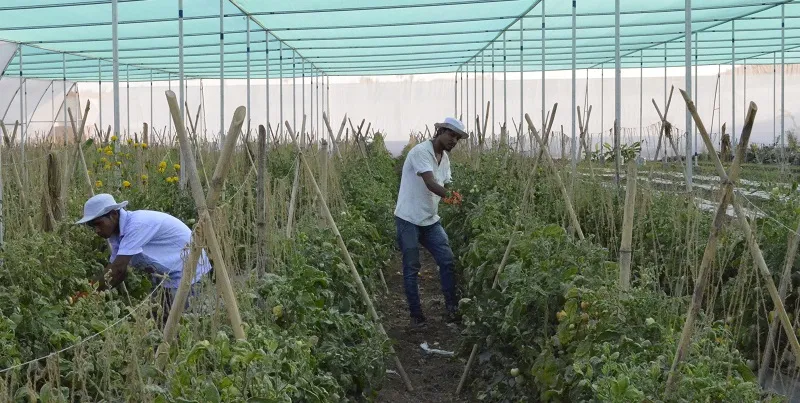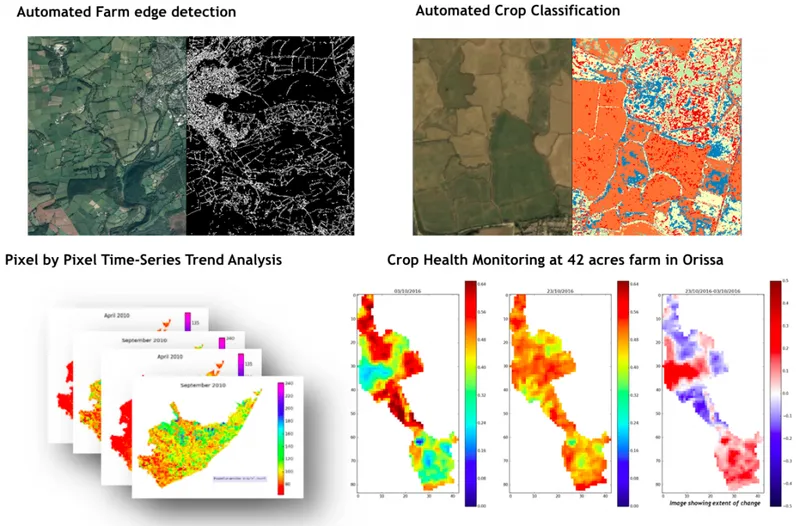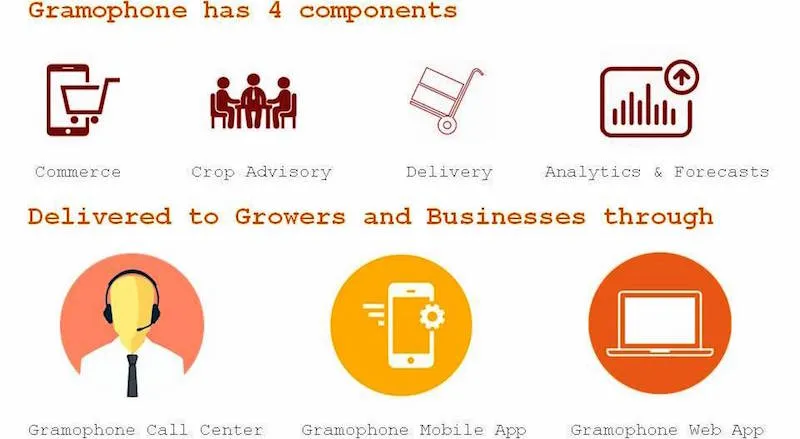How these agri-startups are helping farmers battle drought and poverty
Farmers suicide, droughts, debt, crop failure, and poverty— these words echo the massive scale of problems faced by the agrarian community in India. However, technological innovations, agriculture startups and aggregators, primarily driven by the youth, have helped the farmer community to mitigate some of these challenges.
Access to the mandi, directly
Post the crop harvesting phase, access to the market is one of the key problems faced by the agrarian community. Further, the middle men and wholesale commission agencies often dictate the prices at which fruits and vegetables are sold. This interference by the commissioning agents not only reduces the farmers income but it also encourages them to use pesticides to gain a larger harvest, at the cost of quality of the produce.
1. Organic Thellawalas enable a transparent pricing mechanism

With the aim to eliminate the middle men in the mandi (market), Naveen Seri founded TruTrade. Advocating the public to uplift and financially support the small and marginal farmers, he says,
Today, consumers are more concerned about health benefits of the fruits and vegetables. While the only predominant interest of the farmer is to get a higher produce and a higher price for his harvest. Hence, we not only provide market linkages but we have implemented a transparent pricing mechanism, so that the consumer is not only aware of the cost of production but they also know that the maximum price, 70 percent of the selling price, goes to the farmer alone.
Catering to the growing demand of organic food, especially in urban India, TruTrade is assisting 13,000 farmers to switch to organic farming, thereby, creating a positive impact on bio-diversity, soil contamination, water, and air pollution. Further, by providing free thelas (pushcart), the team promotes micro-entrepreneurship among pushcart vendors and farmers.
2. Earth Food provides chemical-free produce at market price

Bridging the demand for organic food at affordable market prices, Pune-based Earth Food strives to re-define “the concept of farming.” Collaborating with multi-national brands such as Reliance Fresh and Nature Fresh, the one-year-old agri-tech startup aims to provide a wide range of chemical-free fruits and vegetables to the consumers.
Through their organisation, Nilesh Palresha, Director of Earth Food, addresses the problem of the time wasted between the harvest and selling period; transportation in unhygienic conditions. He says,
People often complain about how vegetables today are no good compared to what was available 20 years ago. However, we do natural, residue-free farming and sell only what we grow. Our plan is to grow whatever the end user is using at home every day; we want to deliver to their homes whatever we can in that huge basket.
Earth Food provides packaged fruits and vegetables to retail outlets after a thorough inspection and checks on the usage of pesticides and chemicals. It is currently engaging in production of 40 vegetables grown in their 307 acres of land.
Technological assistance to mitigate agri crises
The rain-dependent nature of the Indian agriculture community continues to pose a big threat given the changing climatic conditions, depleting groundwater resources, droughts, and floods. This uncertainty has resulted in crop failures and in turn have led to a spiral of financial distress, and at times, farmer suicides.
1. SatSure uses IoT and big data to provide financial security to farmers

With a firm belief that technology is an enabler of change, 33-year-old Abhishek Raju founded SatSure to provide crop insurance and financial security through satellite imaging, weather and IoT analytics. He says,
The spate of farmer suicides and measly compensation received by farmers for their losses motivated us to work towards improving the sustainability of agriculture, by addressing the basic need of this sector–ensuring financial security of the vulnerable by supporting institutional mechanisms in place through good macro and micro data.
The current Crop Cutting Experiments (CCEs) followed by the farmers is both a manual and a time-consuming process. Hence, SatSure advocates the use of satellite-based crop clustering techniques to get an estimation of the total agriculture production. Further, this data can be used by the agri-insurance companies to provide crop insurance to the farmer post a data-driven risk estimation.
“The satellite imaging analytics serve two purposes: first, it ensures that the farmers receive a fair and immediate compensation for crop loss due to adverse climatic conditions. Second, it enables insurers to settle claims speedily due to the availability of data in near-real time without any manual intervention,” Abhishek adds.
2. Gramophone uses technology to address information asymmetry

Be it access to agriculture hardware, information on crop protection and nutrition, or procurement of quality seeds— Indore-based Gramophone aims to become a one-stop platform, catering to the needs of the farmer community. Integrating both the advisory and sale of inputs under a single roof, Tauseef Khan, Co-founder of Gramophone, says,
Farmers can access crucial mentoring on crop advisory, and weather information coupled with the best products to grow. This will improve productivity and help farmers sustainably increase the income from agriculture. All we need to know is two or three data points, and we can get an entire schedule of what products an individual farmer is going to need across the season.
With an automated crop advisory mechanism, the team can scale across geographies according to the crop and land size, thereby, providing customised information according to the needs of the farmer.
In Sum
Public generated investment, either by direct purchase of farm goods without the intervention of middle men or by providing access to the agriculture hardware with the village community, is a tiny step but will empower the farmers. Technological intervention is the need of the hour to mitigate farm crises and help provide financial security through risk estimation and crop insurance.
Given the massive scale of issues faced by the agrarian community today, it is essential for more technology and IoT based services to address these growing challenges. The above-mentioned organisations are few of the many startups working with the aim to help farmers gain better access and facilities at various levels.







